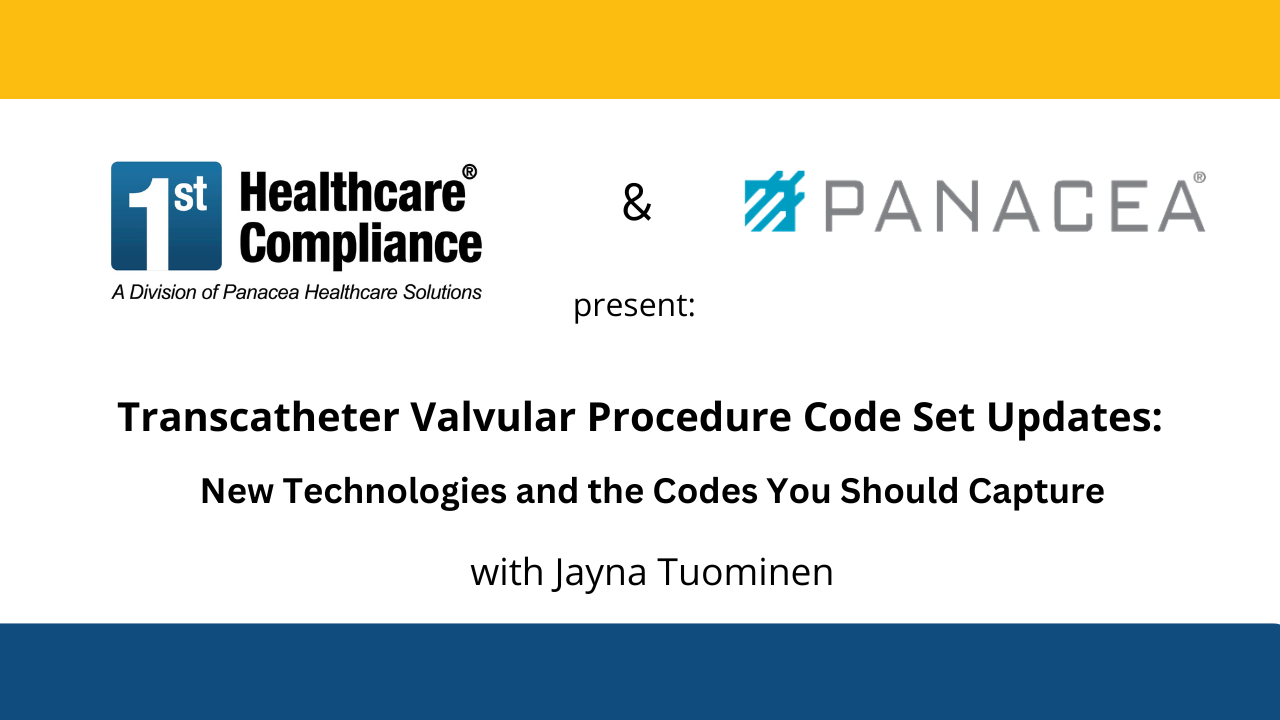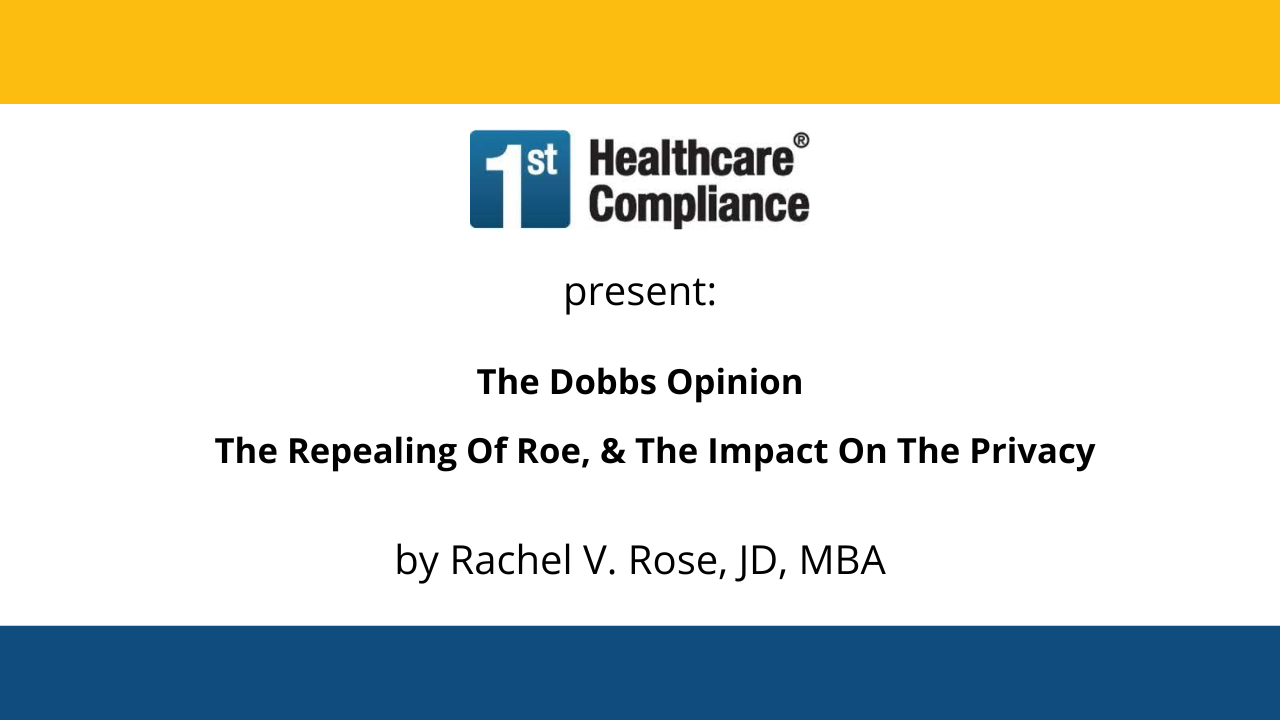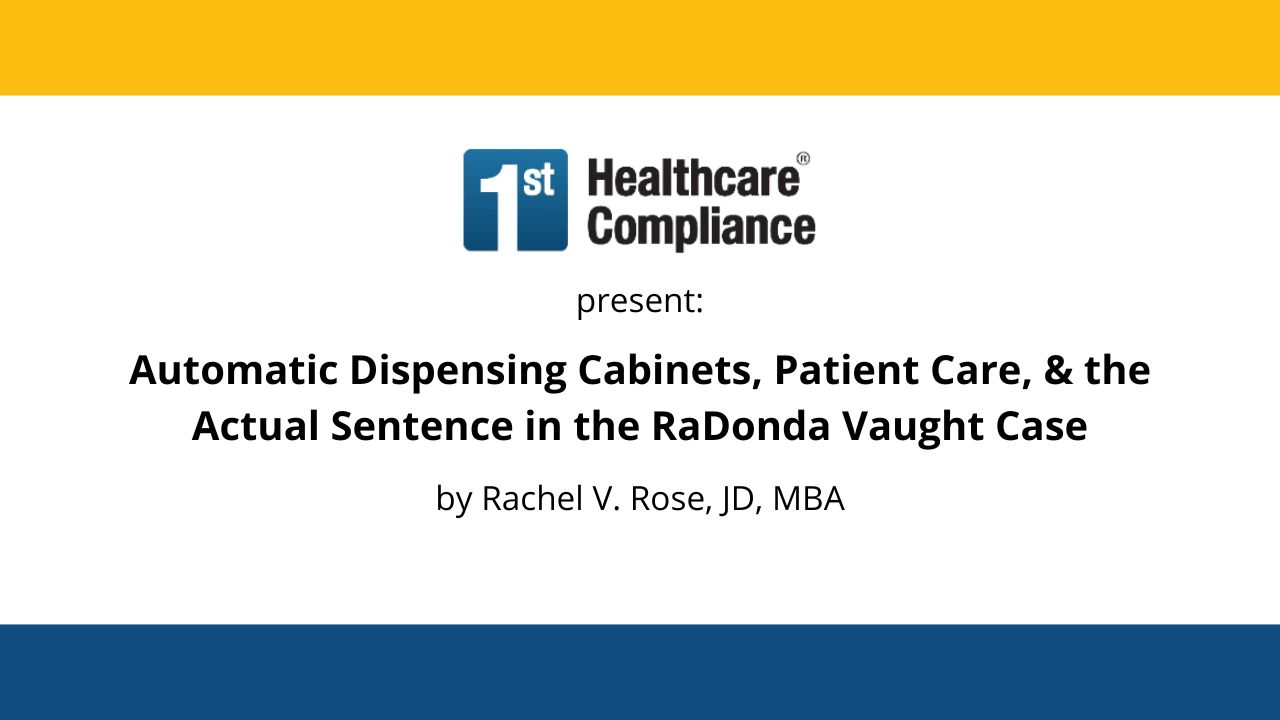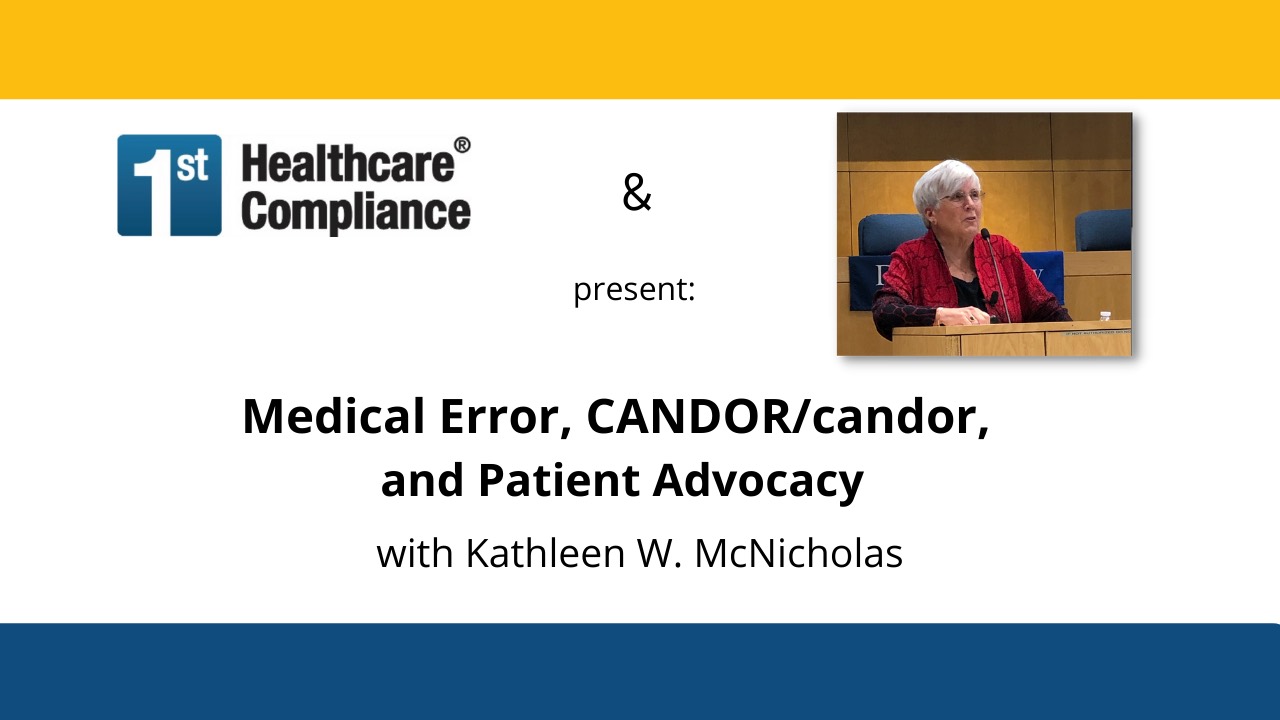
Transcatheter Valvular Procedure Code Set Updates: New Technologies and the Codes You Should Capture
The transcatheter valvular procedure code set in CPT has significantly expanded since the transcatheter aortic valve replacement (TAVR) codes were created in 2013. To keep up with the development of these novel treatment options in the subspecialty of interventional cardiology, several additions have been made to CPT to capture new procedures across all four cardiac valves in several areas of the code book. Additionally, many patients are enrolled in clinical trials as this area of medicine rapidly expands, creating the need for a nuanced understanding of coding, billing, and claim requirements beyond just the assignment of the correct CPT code.
Join Panacea Senior Healthcare Consultant Jayna Tuominen for this 60-minute webinar, where she will review the current state code set for transcatheter valvular heart interventions across all four cardiac valves and discuss how to successfully navigate clinical trial coding, billing, and claim submission for these procedures. This presentation will equip physicians, charge entry personnel, coding professionals, practice administrators, and revenue cycle staff with the information needed to perform accurate and compliant coding and claim submission.

The Dobbs Opinion, the Repealing of Roe, & the Impact on the Privacy & Security of Patient Information
Rachel V. Rose, JD, MBA, principal with Rachel V. Rose – Attorney at Law, P.L.L.C., Houston, TX presents this very timely subject for us.The Dobbs Opinion repealed fifty years of precedent under Roe. The implications of the Opinion extend beyond women’s reproductive rights and impact the privacy rights of all Americans. The purpose of this webinar is to explain the key aspects of the Dobbs Opinion related to privacy from both the Majority and the Dissent’s perspective, address the current legislative initiatives, HHS Guidance, and Executive Orders, as well as appreciate the role HIPAA plays in navigating Dobbs.

Automatic Dispensing Cabinets, Patient Care, & the Actual Sentence in the RaDonda Vaught Case
Rachel V. Rose, JD, MBA, principal with Rachel V. Rose – Attorney at Law, P.L.L.C., Houston, TX presents this very timely and fascinating subject for us. A former nurse was charged, criminally prosecuted, and in March 2022, convicted of gross neglect of an impaired adult and negligent homicide for a 2017 fatal drug error. This webinar approaches the facts and circumstances, which led to the fatal error, the role that Automatic Dispensing Cabinets (ADCs) played in the process in order to prevent similar situations. The purpose is to inform participants of a myriad of items so that facilities can evaluate and implement appropriate safeguards, train nurses and other staff, and take corrective actions before an adverse patient outcome occurs. What happened here is preventable and nurses should not flee the profession, especially because of the compassion shown by the judge.

Medical Error, CANDOR/candor, and Patient Advocacy
Kathleen W. McNicholas, MD, JD, CHC, CCEP, Consultant and Patient Advocate with Medical Legal Patient Advocacy Inc. will lead this webinar to review medical error and provide an approach to harmed patients. The CANDOR program of Communication and Optimal Resolution will be explained. CANDOR is well established and has been successfully adopted by many medical centers. Without CANDOR in place, patients may benefit from the use of the principles and the help of a board-certified patient advocate.
